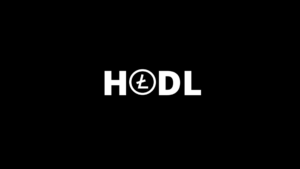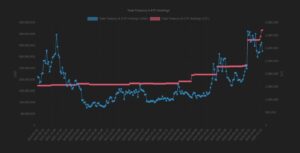Decentralised exchanges are soaring to record volumes as the Robinhood fraud against retail investors speaks to a pervasive rot in traditional financial markets.
In brief
- Decentralised exchanges are seeing record volumes at the same time Robinhood and other brokers openly commit stock-market fraud.
- DEX volume reached $63 billion in January alone, over half of all volume seen in 2020.
- As stock market traders become disillusioned by traditional institutions, DeFi offers a ready alternative.
The frenzy around GameStop, AMC and other ‘meme stocks’ have resulted in stock brokers like Robinhood suspending or restricting trading for thousands of users amidst clear-cut anti-free market fraud, as explained earlier this week.
At the same time, decentralised exchanges like Uniswap are seeing a frenzy of their own taking place, with no way for developers or anyone else on this earth who can intervene or ‘halt trading’ at a moment’s notice.
In fact, decentralised exchanges (DEX) just closed out their biggest month ever, processing more than $63 billion in trading volume over the last 30 days, per data from CoinGecko. That’s over half the aggregate volume from all of 2020 in January alone.
As cracks in the traditional financial infrastructure turn into fissures, cryptocurrency sub-sectors, specifically decentralised finance (DeFi) are palpably gaining momentum.
Buying crypto? Start here.
Briefly, decentralised exchanges are built to run on blockchains like Ethereum using smart contract technology to automatically execute commands and swap between cryptocurrencies. Since these protocols are decentralised, there is no central authority that connects trades, but rather liquidity pools which are built by protocol users contribute directly to manage these swaps.
Without a central authority to dictate trading terms, DEX’s are purportedly uncensorable – though this proposition has yet to stand the test of time due to possible layers of systemic risks in the ecosystem. Still, decentralised exchanges such as Kyber Network, form part of a larger industry known as decentralised finance. Broadly speaking, the sector aims to replace traditional financial products and services, ranging from asset swaps, loans and interest-bearing deposits – allowing open access to anyone with an internet connection.
Since the summer of 2020, when DeFi began to make a dent as locked value in the sub-sector soared from $1 billion to over $10 billion in weeks. This figure now stands close to the $30 billion mark as interest and usage grow.

Uniswap, by far the most popular decentralised exchange, captured over 40% of all DEX trading volume in January. The UNI token, which is used for voting rights on decisions about the future of the protocol, has increased over 300% since the start of 2021. In reality, the UNI token is used more as a tool for speculation given its limited uses in the exchange, but given GameStop’s incredible 1700% rally, perhaps this comparatively measly 300% move still has a way too go.
Jokes aside, now that thousands of Redditors and small-time investors have been thrown under the bus by Robinhood and traditional exchanges, the need for uncensorable trading could not be more pronounced. Billionaire hedge funds have pulled the strings and changed the rules of the game overnight – something that cannot happen on a decentralised exchange without prior consensus (due to the diversity of stakeholders involved).
While replacing centralised financial infrastructure might not yet be a viable alternative, decentralised exchanges certainly promise to keep exchanges in check if such a scenario were to arise in the cryptocurrency trading world – which is still largely run through central exchanges.
Subscribe to the semi-weekly newsletter for regular insight into bitcoin and crypto. Go on. It’s free.
Join the telegram channel for updates, charts, ideas and deals.
Did you like the article? Share it!


